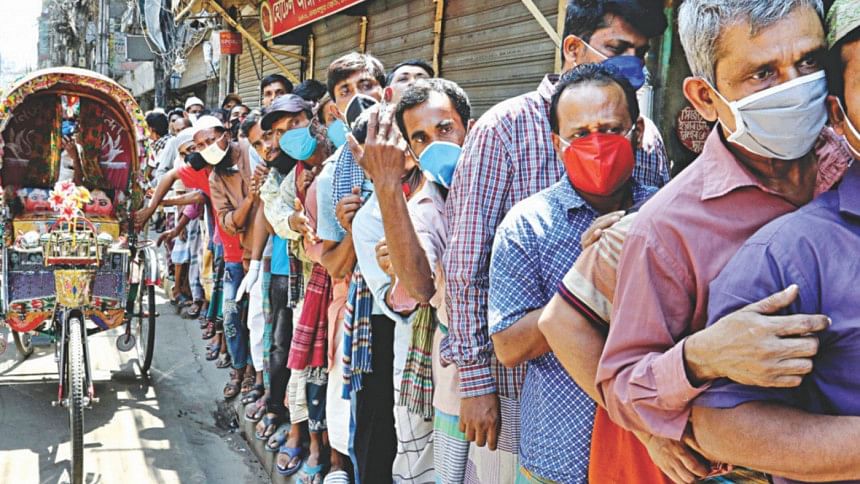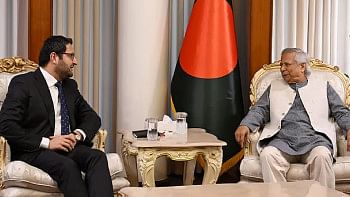Is Bangladesh prepared for a second wave?

A report published in this newspaper reveals the harrowing outcomes experts predict we might have to endure while braving a possible second wave of the coronavirus, which threatens to derail Bangladesh's feeble economic recovery, deal a massive blow to poor and low-income groups, reduce fiscal space and constrain public expenditure. The crisis wiped out at least 50 percent of the GDP growth potential in the last fiscal year, which ended in June. The pandemic has nearly nullified the advancements made in poverty reduction over the last decade, pushing a great number of people back into poverty and making millions of citizens jobless as the economy continues to suffer.
What worries us is the fact that even at the current pace of economic revival, these woes will weigh heavy into the current fiscal year. The cottage, micro, small and medium enterprises (CMSMEs) would be the hardest hit again should the second wave emerge. We are deeply worried since as many countries around the world are being forced to re-introduce lockdowns amid rising coronavirus infections and deaths, the government's preparations can no longer be limited to rhetoric.
We must take effective precautionary measures based on projections, past experiences (especially of failure to control the pandemic) and general apathy regarding safety measures. The blatant deficiencies in our healthcare system begs to be reformed. Health guidelines, which we so miserably failed to pay heed to, must be enforced, while more testing and life-saving facilities need to be ensured. As there seems to be a lackadaisical attitude towards the government's recent policy of "no mask, no service" and other directives, strict implementation is key to braving the second wave. The government should start preparations targeting those most vulnerable to economic shocks, especially the new poor. Social protection programmes have to include returnee migrant workers, garment workers and other vulnerable groups.
The government must pay special attention to supporting small and medium enterprises and make sure the rescue packages are distributed timely and effectively. We can follow in the footsteps of nations that have successfully opened up their economies whilst maintaining health protocols. While the government's decision to make the coronavirus vaccine available to all free of cost once it is ready is surely commendable, its effectiveness is yet to be proven. Therefore, enforcing health guidelines, increased testing and supporting vulnerable groups should be key strategies to tackle a second wave and avoid further shocks to public health and the economy.

 For all latest news, follow The Daily Star's Google News channel.
For all latest news, follow The Daily Star's Google News channel. 



Comments